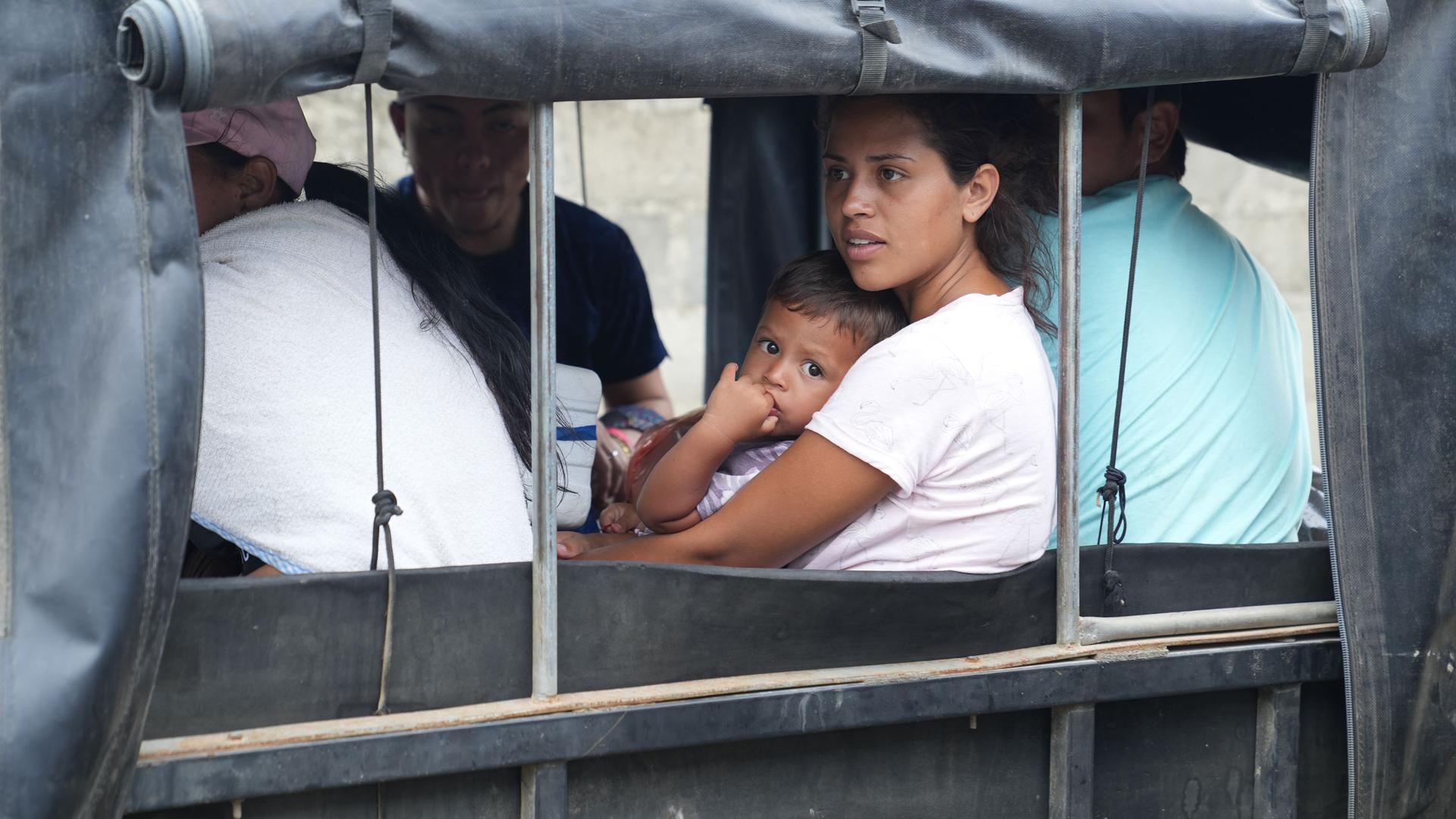Capurgana is a remote village in northern Colombia, but its migrant shelter hosts people from all over the world.
Women from Somalia wait on plastic chairs wearing black hijabs and long-sleeved shirts in the tropical heat. At the other end of the shelter, a couple from Venezuela are feeding their 1-year-old pitbull.
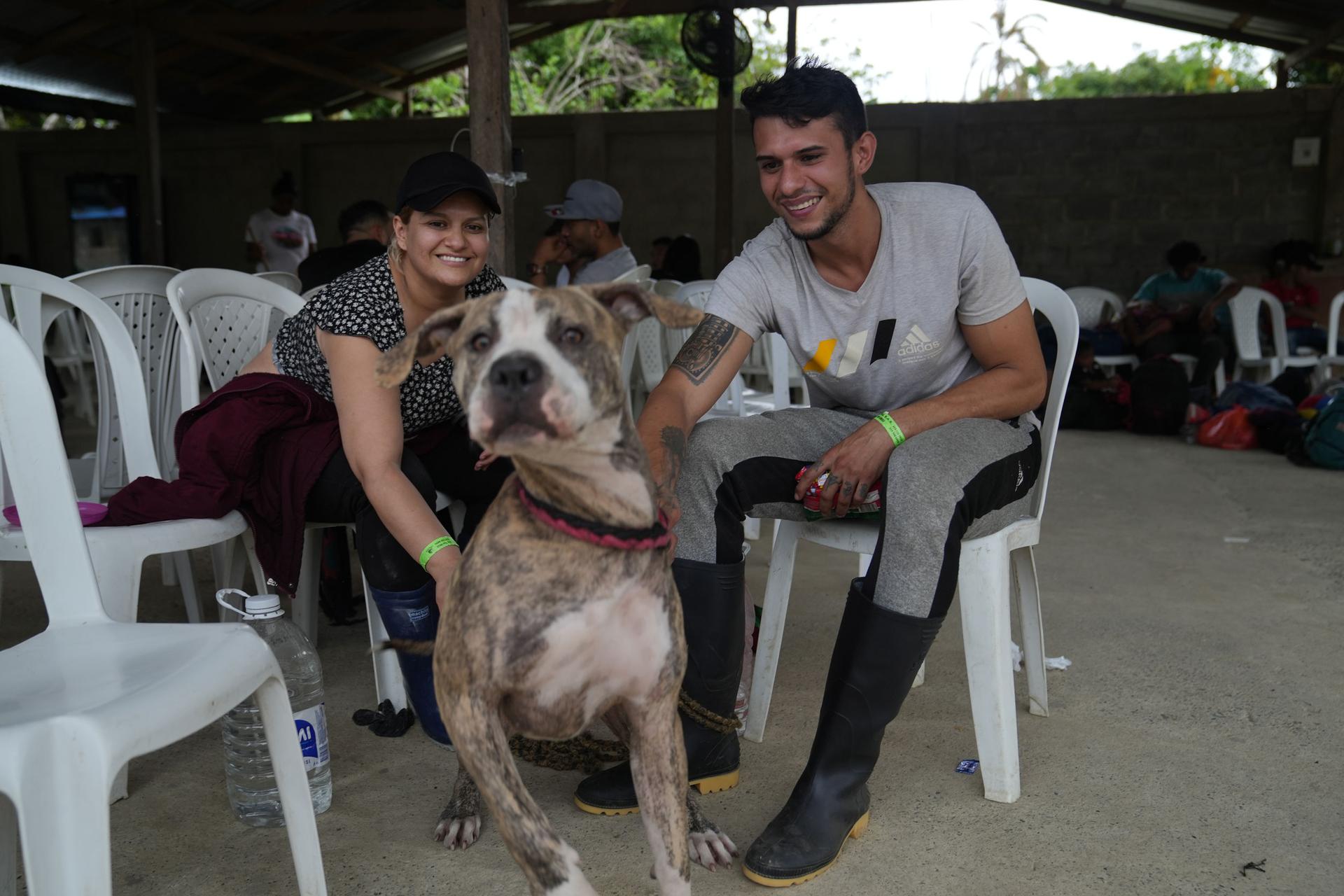
Everyone at the shelter wants to go to the United States. But first, they must cross the Darién Gap, a dense and roadless swath of jungle that separates South America from Central America.
A group of about 15 men from Nepal all wear backpacks, preparing to head into the jungle. One jokes with a vendor about a small hole in his recently purchased rubber boots.
“Why?” he asked the vendor in broken English.
“No problem,” the vendor replied, and wished him good luck on his journey.
The muddy paths are almost impossible for the migrants to navigate on their own. So, in Capurgana, located at the entrance to the Darién jungle and near Colombia’s border with Panama, hundreds of villagers now work as guides and porters leading migrants across the rainforest.
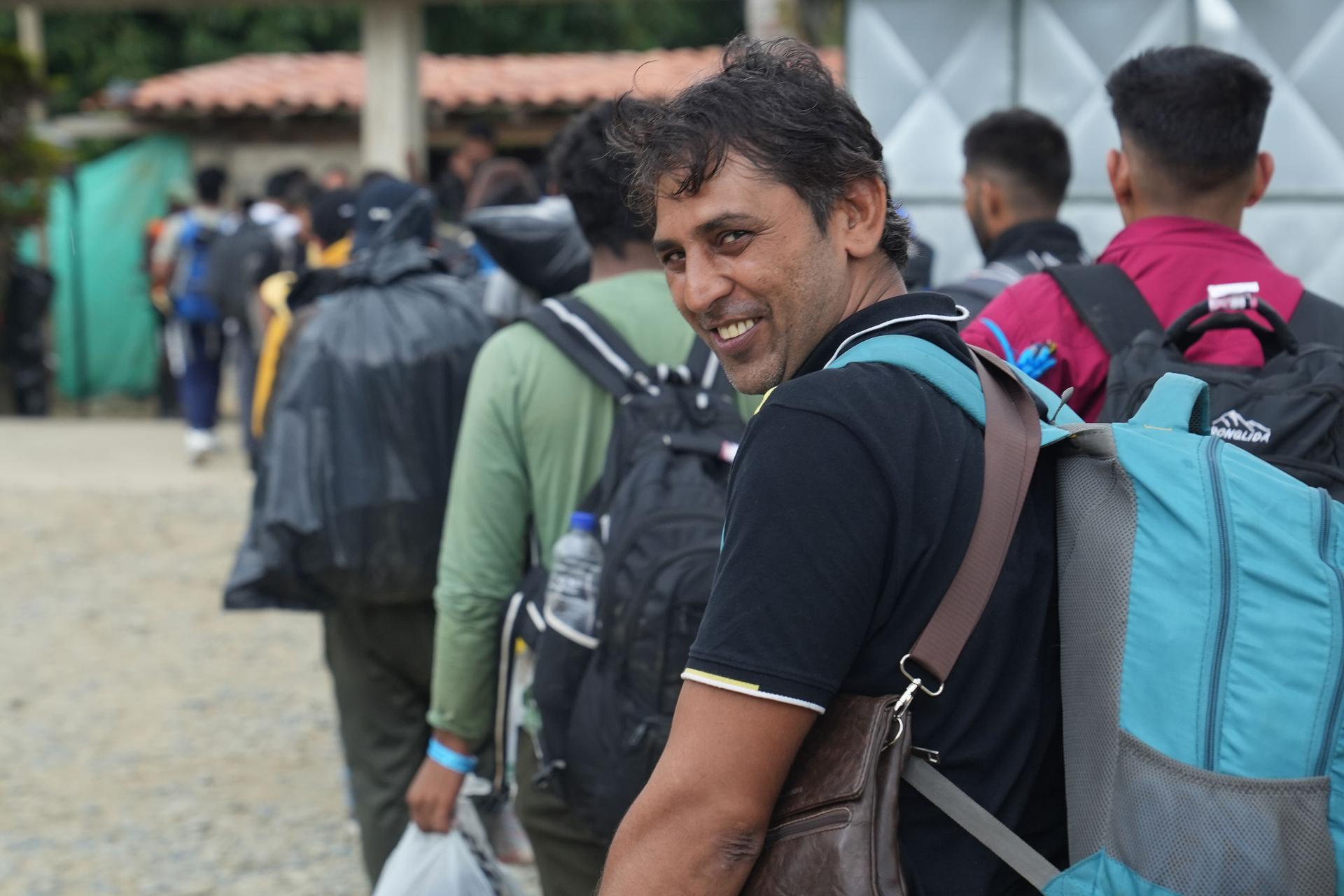
Moving migrants is a profitable business that has boosted Capurgana’s economy and decreased its dependence on beach going tourists from Medellín and Bogotá.
But it’s also turned villagers into a potential target of law enforcement agencies from Colombia, Panama and the United States who have recently promised to crack down on the illegal transit of people and goods through the Darién jungle.
Darwin Garcia, a community leader who oversees the shelter, said that the migrant trade has become a key part of the economy in Capurgana, and the neighboring town of Acandi, even if it’s not entirely legal.
“This work with migrants is generating around 2,500 jobs in this region,” he said. “We’ve even organized it in a way that it doesn’t interfere with our tourism industry.”
More than 100,000 migrants from Africa, Asia and South America have crossed the Darién jungle this year on their way to the United States, running away from problems like inflation, wars and crime.
And that means there is plenty to do in Capurgana.
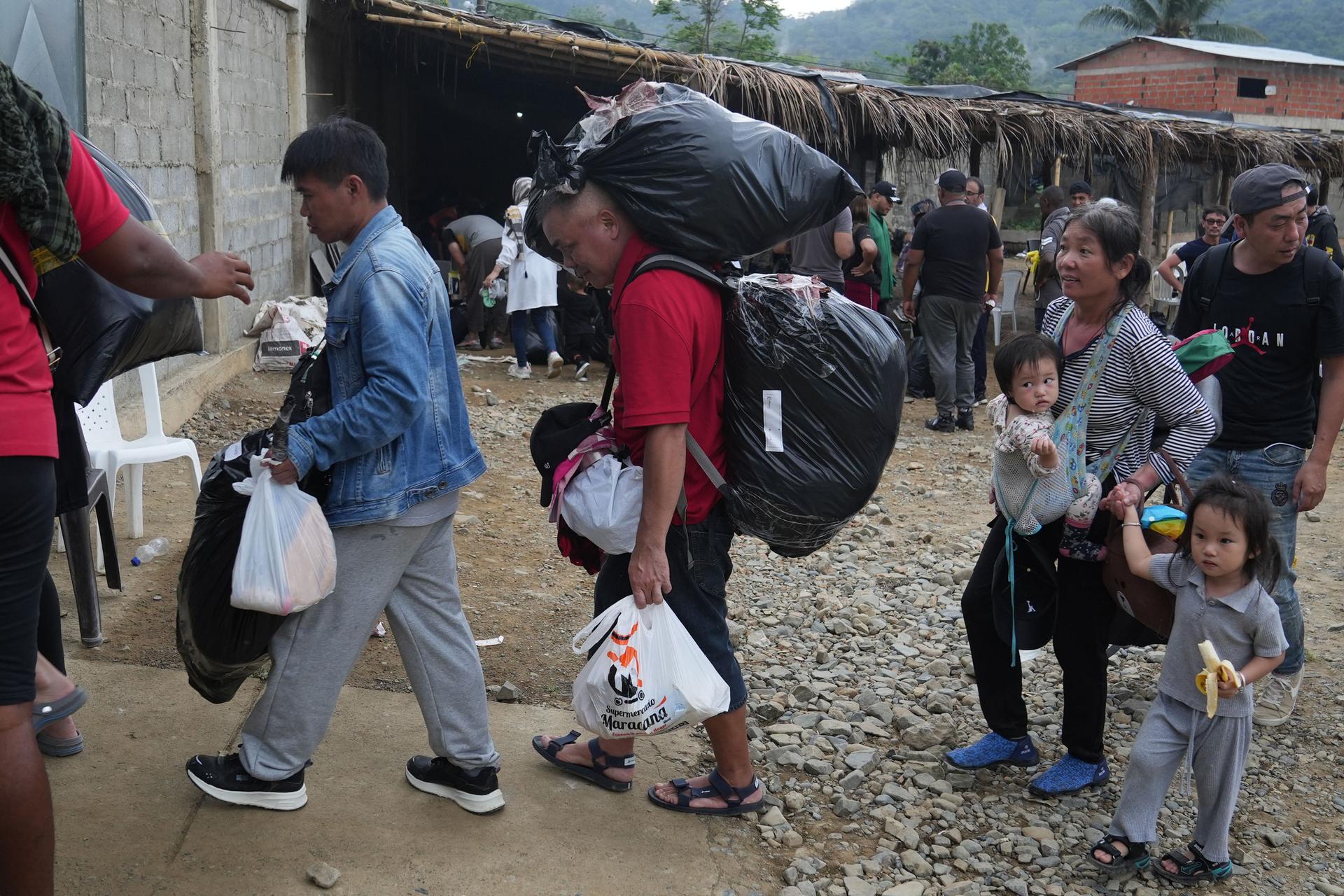
At the village’s shelter, migrants are offered several routes across the Darién jungle, which are drawn on a map.
The cheapest option involves a grueling, three-day trek across the rainforest and costs $180.
For about $400, migrants can take a speedboat into Panama, and then, walk for one or two days to a government-run camp where buses are available.
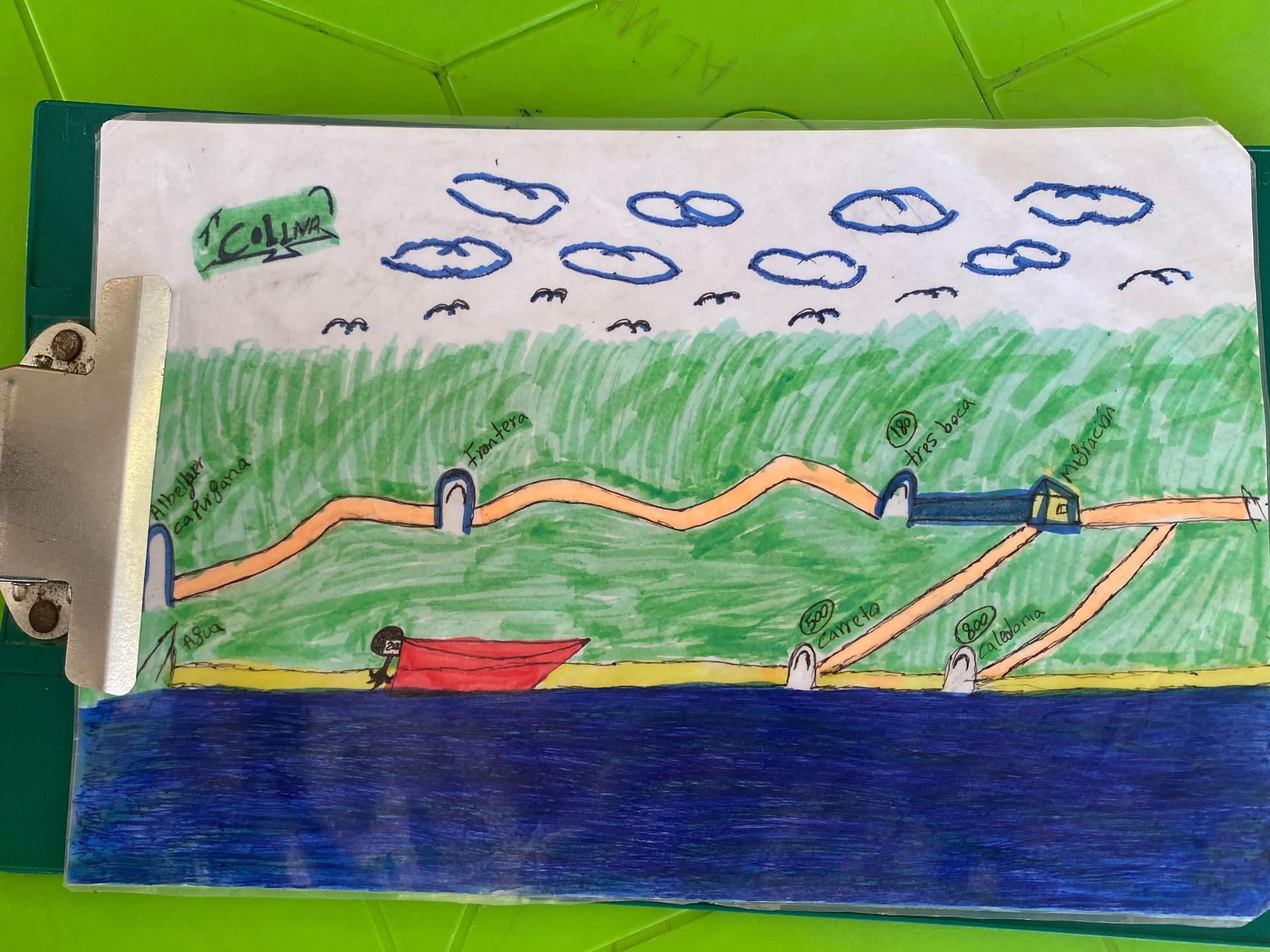
Garcia said the routes across the jungle have been improving: A trek that took five to six days to complete a year ago can now be done in half the time.
“There’s no government entity or humanitarian group here, trying to help these people,” he said. “So, we’ve set up a service for them, so that they can cross the jungle as safely as possible.”
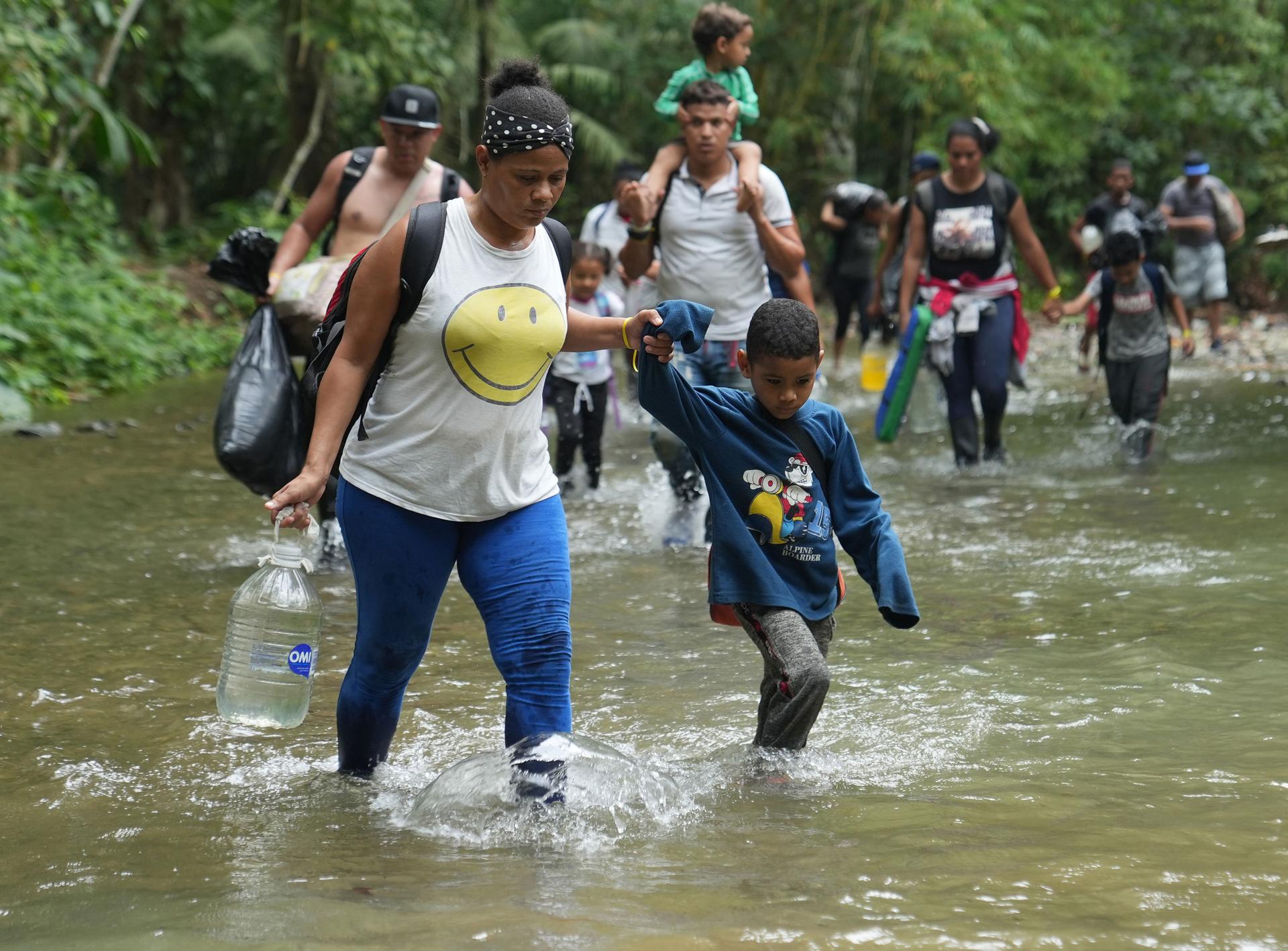
Officials in Colombia have accused villagers in Capurgana of collaborating with human smuggling networks and of exploiting the migrants.
But people in the village say that they are simply acting as “guides.”
“We didn’t ask these migrants to come here,” said Garcia, the only villager who was willing to go on the record about the local immigration industry.
“But we have to do this, so that there are less sick people, or dead people, or people who get raped or robbed along the way.”
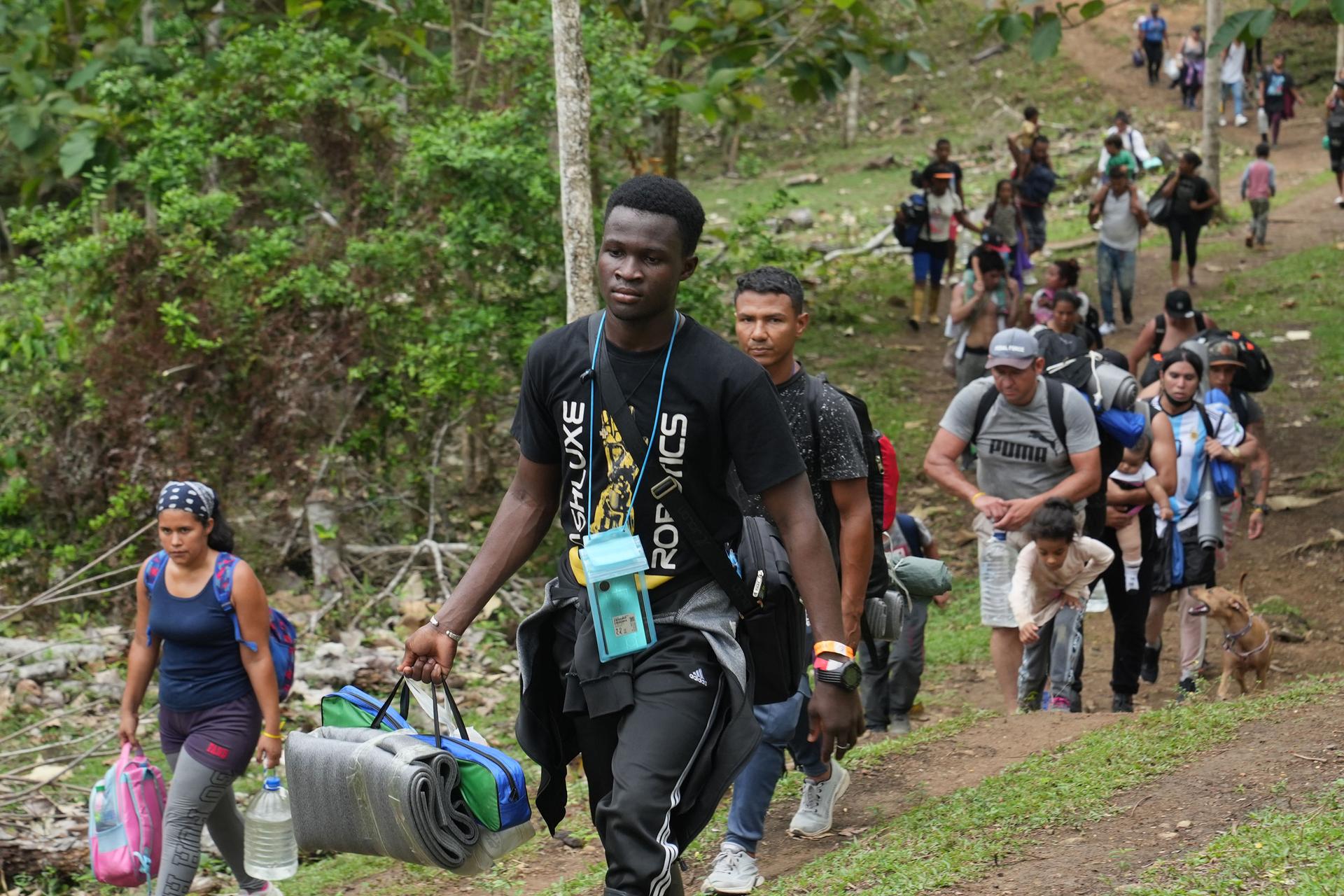
Whatever you call it, moving migrants across this remote corner of Colombia has become a very organized affair.
The town has no roads connecting it with the rest of Colombia, so every morning, anywhere from 200 to 300 migrants arrive at its small harbor on speedboats that fit about 50 people.
After disembarking and getting their bags, migrants are immediately loaded on three-wheeled tuk-tuks that take them to the shelter on the edge of town, so that they don’t disturb tourists along the beaches.
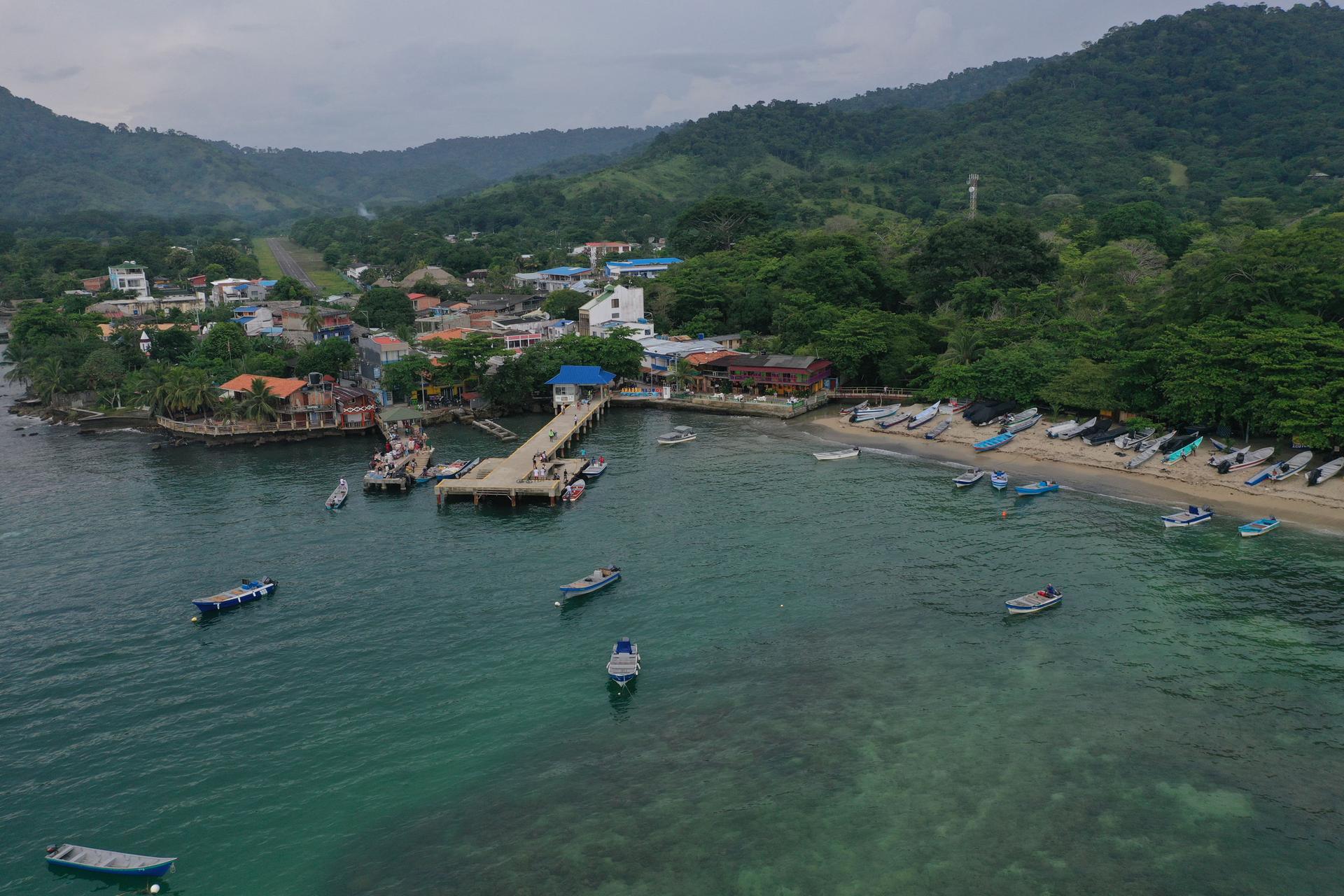
Those who have already paid for the trek across the jungle are quickly led out of the shelter by guides wearing orange vests.
Migrants who have not paid are told they can’t leave the site until they negotiate a fee with the local guides.
These rules have created tensions between the migrants and the local community.
Ana Rivero, from Venezuela, was stuck at the shelter with her friends because they ran out of money. The group said they felt like prisoners.
“We want to keep on going, but we don’t have any more money,” Rivero said. “I don’t understand why they want to hold us here and charge us for everything.”
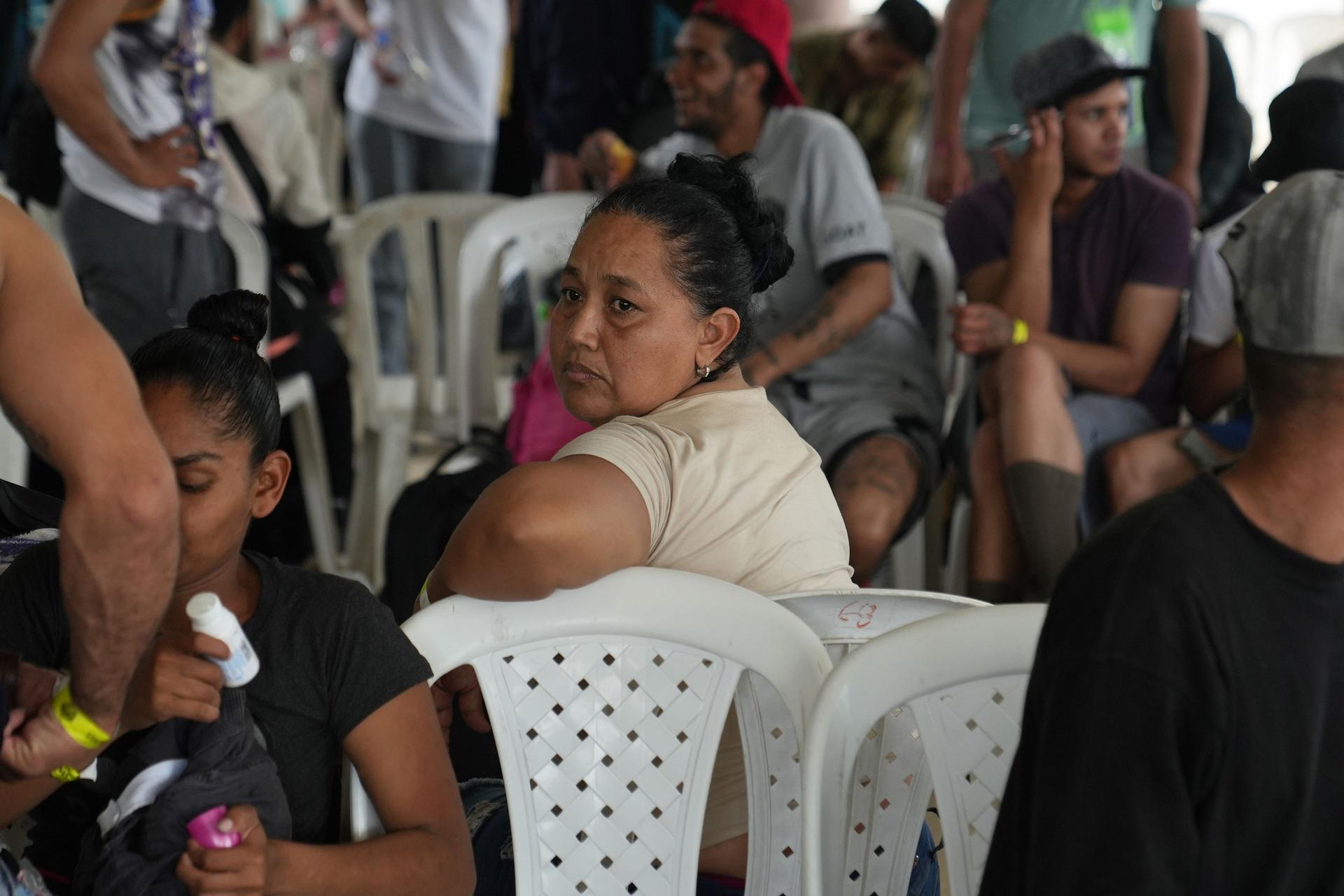
Community leaders enforce this unofficial rule, arguing that if migrants are allowed to walk into the jungle on their own, they could get lost or injured, generating more problems for Capurgana, where there is only a small health post. But they also admit they want to protect their new business.
“We’ve taken some people along for free before, but then, they just tell their friends who are coming behind them not to pay anything,” said Garcia, the shelter’s manager. “Nobody wants to work for free.”
Even though villagers have attempted to organize the jungle crossing, it is still a dangerous journey. Some migrants are robbed along the way, and others are sexually assaulted, particularly on the Panamanian side of the border.
So, in April, the governments of Panama, Colombia, and the United States announced a new plan to stop the irregular transit of people through the Darién jungle.
In a press conference, Katie Tobin, a member of the US National Security Council, said that the State Department will open processing centers in Colombia, where migrants who are en route to the United States can attempt to get visas.
Meanwhile, people who run smuggling networks in the Darién Gap will be arrested and prosecuted.
“We know that there’s criminal organizations and cartels that have gotten into the business of moving people and are charging thousands of dollars for this dangerous journey through Darién,” Tobin said.
She added that as the US lifts Title 42 — the measure used during the pandemic to block hundreds of thousands of asylum requests — smugglers are deploying “disinformation” campaigns on social media to convince migrants that it will now be easier to cross the border and get asylum in the United States.
But Garcia said that in Capurgana and the neighboring town of Acandi, it’s the local people and not cartel members who are moving migrants. He warned that any attempts to arrest villagers will lead to conflicts with the Colombian government.
“If they come here with a helicopter, they’ll have to take half of our village,” he said. “Working with migrants is now part of our economy.”
